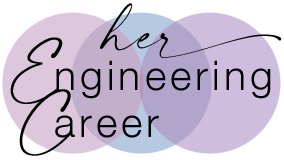Episode Transcript
Your team has had lackluster results lately.
It happens.
But you also notice that trust has declined. And that bothers you.
There’s no enthusiasm for the mission and goals. Participation is flat.
How can your team be successful when members aren’t motivated to get the job done?
When they don’t even care enough to do their best work?
And how can you reach your career goals if you can’t show your effectiveness as a leader?
How Employee Engagement Effects Your Engineering Team
What’s happening here is a lack of employee engagement. And you’re feeling the effects of that.
It makes it harder to work with people. To lead your team.
You lose efficiency and get less than best results.
The solution is to find ways to engage your team members – which is no easy task.
But you have what it takes to do this.
And not only that, you have some advantages when it comes to employee engagement.
Why You’re Seeing Low Engagement Among Your Engineering Team Members
According to Gallup, employee engagement refers to the involvement and enthusiasm of employees in their work.
These days the level of employee engagement is low in general.
Gallup says it’s only at 31% in the US.
Engagement has dropped in recent years.
First because of the pandemic and the resulting isolation.
Low engagement can be one of the negative consequences of remote work.
And one of the challenges in optimizing remote and hybrid work.
Employee engagement has also dropped because of job turmoil due to recent government mandates.
Unfortunately lack of engagement is affecting more managers now too.
There’s more stress in trying to lead in an environment of mistrust and demotivation.
Maybe you notice that your manager is not as engaged.
Maybe you’re affected as a manager yourself.
To keep employees involved and eager, organization executives have to be committed to an engagement strategy.
They need to create an environment for managers and employees to adopt an engagement mindset.
And then managers and team leaders must take on responsibility for employee engagement.
How to Support Your Engineering Team Members for Optimal Engagement
As a manager or a team leader, your job is to embrace this responsibility.
Consider ways you can support your team members for optimal engagement.
Like, making sure they know what work needs to be done.
Providing support and advocating for them.
Telling them how their engagement leads to the success of the mission, the organization, and the community.
Here are 4 ways you’ll know your team members are engaged:
- Your employees know what’s expected of them. They have the resources they need. And feel encouraged and treated with respect.
- Your employees feel that their opinions count. They have opportunities to learn and grow. And to apply their skills and strengths every day.
- Your employees receive true recognition, praise and meaningful feedback.
- Your employees know that someone cares about them as people.
How Women Engineers Have the Employee Engagement Advantage
Fortunately you have some advantages when it comes to employee engagement.
As a manager or team leader you can provide this support to your people.
As a woman engineer you have some skills and strengths that lend themselves well to this. Like,
- Nurturing and communication skills to help team members feel connected and essential.
- The ability to see the whole picture so you can identify where the engagement gaps are. And understand each member’s many facets.
- Your agility superpower that helps you make necessary change. And shift plans to accommodate them.
How to Encourage Engineering Managers to Provide Engagement Support
As an employee, you can expect this support from your manager, too.
And you can further encourage and facilitate it by advocating for yourself and asking for what you need and want:
- Ask for support, resources, opportunity, connection, and inclusion.
- Communicate what you’ve done, what you’re doing now, and where you want to go.
- Sell your skills, strengths, contributions, and impact.
These are all essential aspects of self-advocacy that you need to practice and refine for your successful career.
And here’s where I can help.
Even if you know you need to do this, how to do it is not always straightforward. So sign up for a strategy session with me, and we’ll tailor a self-advocacy plan just for you.
In general, be attentive to your organization’s engagement mindset.
Because, if you’ve done your part to facilitate it to no avail, you probably should consider other options.
The Engagement Benefits to You and Your Engineering Organization
Clearly there are benefits to your organization if their employee engagement level is high. Like,
- Less turnover and absenteeism.
- Higher performance, quality and customer ratings.
- And better business outcomes.
There are also benefits to you when your team is engaged.
High team engagement enables more innovative ideas and higher efficiency.
Team members work together better.
Goals are achieved sooner. And often exceeded.
In turn this helps you to develop as a leader.
To accelerate along your career path.
To discover and improve new strengths and skills. And overall expand and achieve your career goals.
Next time on Her Engineering Career Podcast we’ll talk about role models and the part they play in your career success.
I hope you’ll join me for Episode 166.
Reference: https://www.gallup.com/394373/indicator-employee-engagement.aspx

